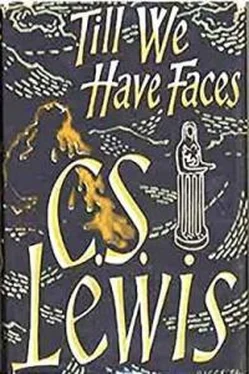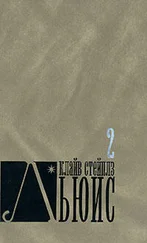But the Fox sought me out before I slept; his face very grey, and his manner very quiet. But that he did not limp, you would have thought he had been in the hands of the torturers. “Wish me well, daughter,” he said. “For I have won a battle. What’s best for his fellows must be best for a man. I am but a limb of the whole and must work in the socket where I’m put. I’ll stay, and——”
“Oh, Grandfather!” said I, and wept.
“Peace, peace,” he said, embracing me. “What would I have done in Greece? My father is dead. My sons have, no doubt, forgotten me. My daughter … should I not be only a trouble— a dream strayed into daylight as the verse says? Anyhow, it’s a long journey and beset with dangers. I might never have reached the sea.”
And so he went on, making little of his deed, as if he feared I would dissuade him from it. But I, with my face on his breast, felt only the joy.
I went to look at my father many times that day, but could see no change in him.
That night I slept ill. It was not fear of the combat, but a restlessness that came from the manifold changes which the gods were sending upon me. The old Priest’s death, by itself, would have been matter for a week’s thought. I had hoped it before (and then, if he had died, it might have saved Psyche) but never really reckoned to see him go more than to wake one morning and find the Grey Mountain gone. The freeing of the Fox, though I had done it myself, felt to me like another impossible change. It was as if my father’s sickness had drawn away some prop and the whole world—all the world I knew—had fallen to pieces. I was journeying into a strange, new land. It was so new and strange that I could not, that night, even feel my great sorrow. This astonished me. One part of me made to snatch that sorrow back; it said, “Orual dies if she ceases to love Psyche.” But the other said, “Let Orual die. She would never have made a queen.”
The last day, the eve of the battle, shows like a dream. Every hour made it more unbelievable. The noise and fame of my combat had got abroad (it was no part of our policy to be secret) and there were crowds of the common people at the palace gates. Though I valued their favour no more than it deserved—I remembered how they had turned against Psyche—yet, willy–nilly, their cheering quickened my pulse and sent a kind of madness into my brain. Some of the better sort, lords and elders, came to wait upon me. They all accepted me for Queen, and I spoke little but, I think, well—Bardia and the Fox praised it—and watched their eyes staring at my veil and manifestly wondering what it hid. Then I went to Prince Trunia in the tower room and told him we had found a champion (I did not say whom) to fight for him and how he would be brought in honourable custody to see the fight. Though this must have been uneasy news for him, he was too just a man not to see that we were using him as well as our weakness would bear. Then I called for wine that we might drink together. But when the door opened—this angered me for the moment—instead of my father’s butler it was Redival who came in bearing the flagon and the cup. I was a fool not to have foreseen it. I knew her well enough to guess that once there was a strange man in the house she’d eat her way through stone walls in order to be seen. Yet even I was astonished to see what a meek, shy, modest, dutiful younger sister (perhaps even a somewhat downtrodden and spirit–broken sister) she could make of herself carrying that wine; with her downcast eyes (which missed nothing from Trunia’s bandaged foot to the hair of his head) and her child’s gravity.
“Who’s that beauty?” said Trunia as soon as she was gone.
“That’s my sister, the Princess Redival,” said I.
“Glome is a rose garden; even in winter,” said he. “But why, cruel Queen, do you hide your own face?”
“If you become better known to my sister, she’ll doubtless tell you,” said I; more sharply than I had intended.
“Why, that might be,” said the Prince. “If your champion wins tomorrow; otherwise death’s my wife. But if I live, Queen, I wouldn’t let this friendship between our houses die away. Why should I not marry into your line? Perhaps yourself, Queen?”
“There’s no room for two on my throne, Prince.”
“Your sister then?”
It was of course an offer to be seized. Yet for a moment, saying yes to it irked me; most likely because I thought this prince twenty times too good for her.
“For all I can see,” said I, “this marriage can be made. I must speak to my wise men first. For my own part, I like it well.”
The day ended more strangely than it began. Bardia had had me into the quarters for my last practice. “There’s that old fault of yours, Queen,” he said, “in the feint reverse. I think we’ve conquered it; but I must see you perfect.” We went it for half an hour and when we stopped to breathe he said, “That’s as perfect as skill can go. It’s my belief that if you and I were to fight with sharps you’d kill me. But there are two things more to say. This first. If it should happen, Queen—and most likely it won’t happen to you, because of your divine blood—but if it should happen that when your cloak’s off and the crowd’s hushed and you’re walking out into the empty space to meet your man—if you should then feel fear, never heed it. We’ve all felt it at our first fight. I feel it myself before every fight. And the second’s this. That hauberk you’ve been wearing is excellent for weight and fit. But it’s a poor thing to look at. A trace of gilding would suit a queen and a champion better. Let’s see what the Bedchamber has.”
I have said before that the King kept all manner of arms and armours in there. So in we went. The Fox was sitting by the bedside; why, or with what thoughts, I don’t know. It was not possible he should love his old master. “Still no change,” he said. Bardia and I fell to rummaging among the mail, and soon to disputing; for I thought I’d be safer and more limber in the chain–shirt which I knew than in any other, and he kept on saying, “But wait—wait—now here’s a better.” And it was when we were most busied that the Fox’s voice from behind said, “It’s finished.” We turned and looked. The thing on the bed which had been half–alive for so long was dead; had died (if he understood it) seeing a girl ransacking his armoury.
“Peace be upon him,” said Bardia. “We’ll be done here very shortly. Then the women can come and wash the body.” And we turned again at once to settle the matter of the hauberks.
And so the thing that I had thought of for so many years at last slipped by in a huddle of business which was, at that moment, of more consequence. An hour later, when I looked back, it astonished me. Yet I have often noticed since how much less stir nearly everyone’s death makes than you might expect. Men better loved and more worth loving than my father go down making only a small eddy.
I kept to my old hauberk, but we told the armourer to scour it well, so that it might pass for silver.
On a great day the thing that makes it great may fill the least part of it, as a meal takes little time to eat, but the killing, baking and dressing, and the swilling and scraping after it, take long enough. My fight with the Prince took about the sixth part of an hour; yet the business about it, more than twelve.
First of all, now that the Fox was a freeman and the Queen’s Lantern (so we call it, though my father had let the office sleep) I would have him at the fight and splendidly dressed. But you never had more trouble with a peevish girl going to her first feast. He said all barbarians’ clothes were barbarous and the finer the worse. He would go in his old moth–eaten gown. And when we had brought him into some kind of order, then Bardia wanted me to fight without my veil. He thought it would blind me and did not see how it could well be worn either over or under my helmet. But I refused altogether to fight bareface. In the end I had Poobi to stitch me up a hood or mask of fine stuff, but such as could not be seen through; it had two eyeholes and covered the whole helmet. All this was needless, for I had fought Bardia himself in my old veil a dozen times; but the mask made me look very dreadful, as a ghost might look. “If he’s the coward they’d make him,” said Bardia, “that’ll cool his stomach.” And then we had to start very early, it seemed, for the crowd in the streets would make us ride slowly. So we had Trunia down and were all presently on horseback. There was some talk of dressing him fine too, but he refused this.
Читать дальше











